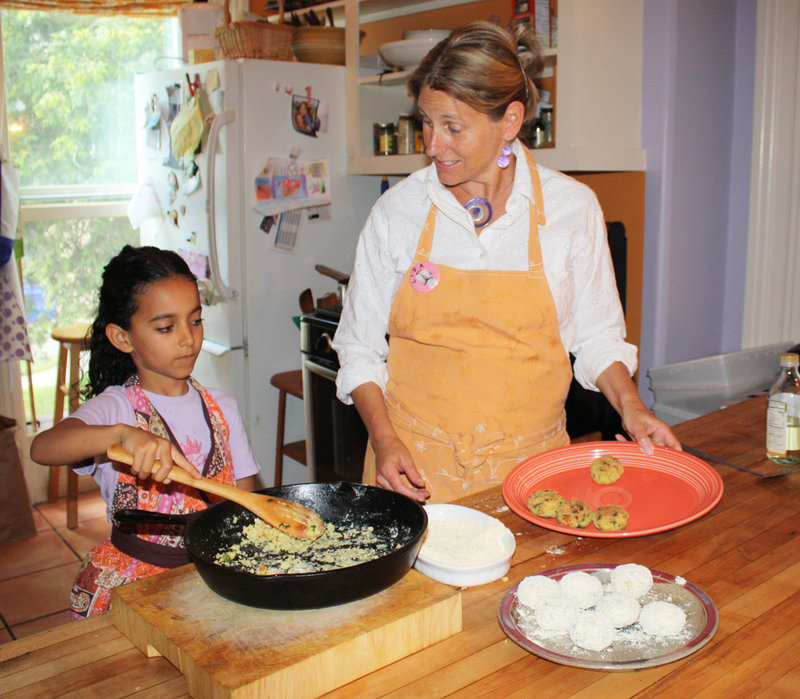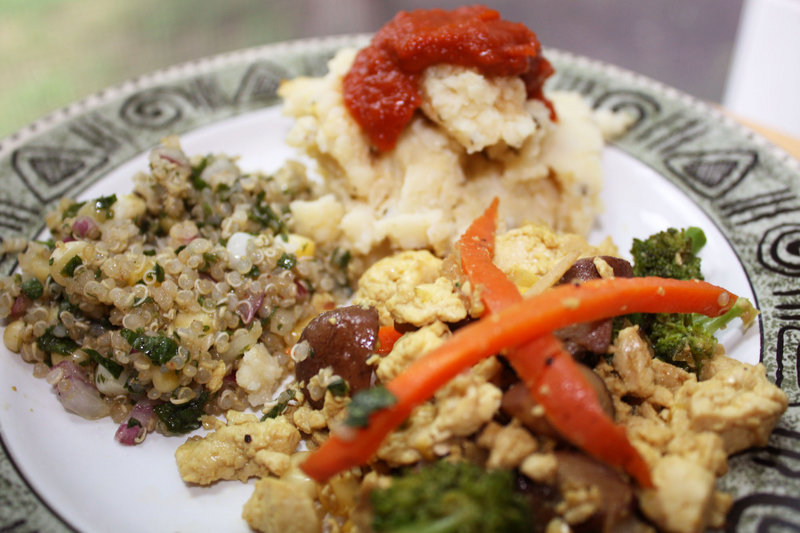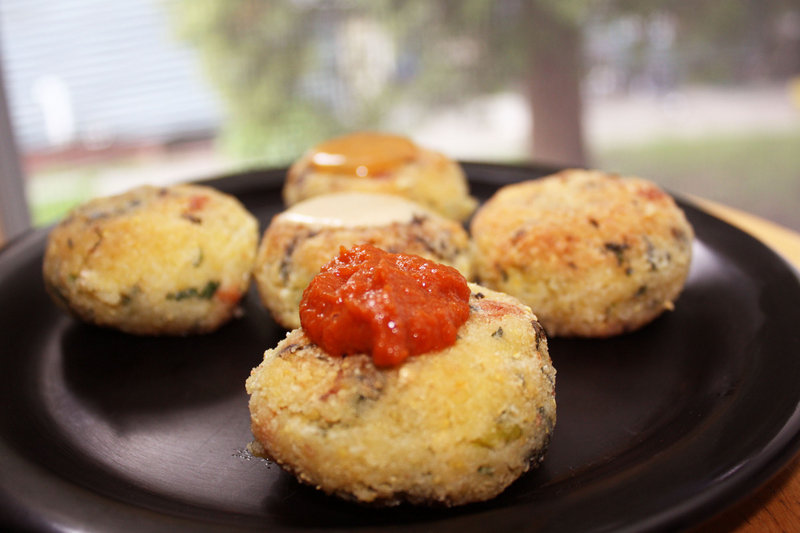When a serious illness caused Jean Twomey to seek more than conventional medicinal treatment, she found herself at the Five Seasons Cooking School in Portland learning to prepare macrobiotic meals.
“I came from a meat and potatoes background,” said Twomey of South Portland. “I love dairy products, butter, meat and chocolate.”
At the school on Munjoy Hill, Twomey discovered how to push those ingredients aside in favor of tempting ways to prepare whole grains and vegetables.
“I learned about grains I’ve never used before,” she said, “such as amaranth, quinoa and rye berries. I realized I hadn’t tried many vegetables over the years — mustard greens, bok choy, kale.”
This all changed for her after she took multiple classes at Five Seasons.
The school is run by Lisa Silverman, and it hosts frequent visits from well-known macrobiotic teachers.
Next week, Jessica Porter, a former Portland resident and author of “The Hip Chick’s Guide to Macrobiotics,” will teach a class at the school. At the end of September, internationally acclaimed macrobiotic educator Warren Kramer will come to the school to offer a lecture and teach a class.
Silverman first studied macrobiotics in Denmark. In 1991, she attended the Kushi Institute in Becket, Mass., and then returned to Portland and started teaching classes. The following year, she traveled to Switzerland and studied at the International Macrobiotic Institute.
By 1995, she had launched the Five Seasons school, located in her home on St. Lawrence Street, but she often offers classes at other locations.
Silverman describes the macrobiotic diet as such: “Eliminate sugar, dairy and meat. Eat brown rice. And eat a lot of fresh vegetables.”
Sounds fairly simple. But for those who follow a macrobiotic lifestyle, it’s not just about eating certain things and avoiding others; it’s also about seeking out food that has balanced energy.
“It’s looking at food not just as carbohydrates and proteins,” Silverman said. “It’s looking at food as energy.”
Using the macrobiotic spectrum of yin and yang, sugar and alcohol are considered extreme yin, and meat and dairy are considered extreme yang. In the middle are cooked whole grains, beans, vegetables, seaweed and fish.
Silverman said well-known macrobiotic teacher Michio Kushi once said to her: “When you eat whole foods, you think holistic. When you eat processed food, you have fragmented thinking.”
As an example, Silverman said, “when you eat sugar, you’re staying on the surface. You don’t slow down and think about something before you act.”
Silverman pointed out that sugar addiction is very common in this country. “If someone has a lot of craving for sugar, there’s too much yang (in the diet),” Silverman said. In a similar vein, “flour is just like processed sugar.”
People who eat macrobiotic food can generally be grouped into two categories: those who want to maintain health and those who are trying to restore health.
Someone eating macrobiotic foods as a way to heal will avoid nightshade vegetables (such as tomatoes, potatoes, peppers and eggplants), because they are too yin. In contrast, people who eat macrobiotic food to maintain their good health may eat these vegetables on occasion along with other foods that may be considered extreme yin or yang.
During the classes she teaches, Silverman spends time not only discussing the energetic qualities of food, but also talking about the particular energy a cook brings to the kitchen.
“It’s almost like a meditation,” she said, “especially if you’re cooking for people who aren’t well. You’re animating the food with your intention and your spirit.”
Silverman said that when you eat a restaurant meal prepared by a chef who is angry or stressed, you are ingesting and incorporating that energy and those emotions in your body.
“In cooking classes, I try to teach people more about consciousness around food,” Silverman said. “Before cooking, we get quiet and centered, and wish everyone to be well and wish everyone to find their way to be well.”
Twomey praises Silverman’s teaching style and overall approach to cooking.
“One of the things Lisa did for me is, she’s so relaxed and not uptight,” Twomey said. “If you make a mistake, she says to just go with it. Lisa teaches like a good friend who wants you to enjoy the food and the experience.
“The philosophy of the energetics of food makes you appreciate food in a whole new way.”
Staff Writer Avery Yale Kamila can be contacted at 791-6297 or at: akamila@pressherald.com
Twitter: AveryYaleKamila
Copy the Story Link
Send questions/comments to the editors.





Success. Please wait for the page to reload. If the page does not reload within 5 seconds, please refresh the page.
Enter your email and password to access comments.
Hi, to comment on stories you must . This profile is in addition to your subscription and website login.
Already have a commenting profile? .
Invalid username/password.
Please check your email to confirm and complete your registration.
Only subscribers are eligible to post comments. Please subscribe or login first for digital access. Here’s why.
Use the form below to reset your password. When you've submitted your account email, we will send an email with a reset code.